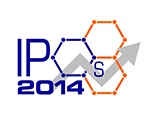 Seattle's Juno Therapeutics ($JUNO) managed to top the already superlative expectations for its Wall Street debut, grossing about $264.6 million and pulling off the Nasdaq's biggest 2014 biotech IPO in the waning days of a huge year.
Seattle's Juno Therapeutics ($JUNO) managed to top the already superlative expectations for its Wall Street debut, grossing about $264.6 million and pulling off the Nasdaq's biggest 2014 biotech IPO in the waning days of a huge year.
The company moved more than 11 million shares at $24 each, a 45% price hike on its previously expected midrange. The company set aside another 1.7 million shares for its underwriters, and if they exercise their overallotment options, Juno's IPO haul could reach as high as $304 million. And that would bring its total haul of private and public cash to more than $600 million in a little more than 12 months--an extraordinarily rare accomplishment in the industry.
The biotech opened trading at $39 a share on Friday morning, an immediate 60% leap that boosted its market cap to nearly $3 billion.
"We wanted to be sure to capitalize the company," CFO Steve Harr tells FierceBiotech today. "It's a great day from that aspect." But, he added, "I don't think it changes the way we run the company."
There's plenty of work ahead before Juno can get in front of regulators.
"We have 10 clinical candidates moving into the clinic next year," says CEO Hans Bishop, giving the fledgling company a broad pipeline at a time it's also investing in manufacturing to support both the research work as well as potential commercial use in the future.
 |
| Hans Bishop |
Juno, a 2014 Fierce 15 honoree, is a leader among companies developing treatments that promise to change the standard of care for blood cancers. The biotech's candidates are CAR-T immunotherapies, made through a process in which scientists remove T cells from a patient's blood and equip them with targeting mechanisms called chimeric antigen receptors (CARs), which seek out and bind to proteins expressed by cancer cells. The resulting cells are reinjected into the patient, at which point they track down malignancies and attack them as they would any commonplace infection.
The company's IPO comes just one day after Houston's Bellicum Pharmaceuticals ($BLCM) executed a $140 million Nasdaq debut to fund its work in the same field. The fervor around CAR-T--and Juno in particular--helped drum up excitement for shares of Bellicum, whose immunotherapies have yet to enter clinical trials.
Juno's lead candidate, JCAR015, is a treatment for acute lymphoblastic leukemia (ALL), the stellar Phase I results of which led the FDA to grant a breakthrough therapy designation last month, promising an expedited regulatory review. Behind that is JCAR017, in development for ALL and non-Hodgkin lymphoma (NHL), followed by JCAR014, which is undergoing early studies on various B cell malignancies. And last week, Juno expanded its pipeline by licensing another CAR-T candidate developed by the National Cancer Institute and currently in Phase I development for ALL and NHL.
The biotech came out of stealth mode in December 2013 as the brainchild of oncology luminaries at the Fred Hutchinson Cancer Research Center and Memorial Sloan-Kettering Cancer Center, with $120 million in the bank and a promising approach to treating cancer. In the ensuing months, Juno posted excellent early clinical results and raised more and more venture cash, looping in Arch Venture Partners, Amazon founder Jeff Bezos and the Alaska Permanent Fund, among others.
Execs and Juno's original backers, including Bishop and Harr, are sitting on paper fortunes today. Bishop was given 7.7 million shares last fall that vest over 4 years, another 3.1 million shares from last spring that also vest over 4 years and an option to buy 4 million shares at $1.59 per share. If the stock holds up at today's price, those shares are worth about $577 million. That's not bad for someone whose sign-on bonus was $35,000.
Some of the original backers, like Arch Venture and the Fred Hutchinson Cancer Research Center, also stand to earn some huge windfalls. "The Hutch" and New York's Memorial Sloan-Kettering Cancer Center also stand to win big bonuses based on Juno's market valuation.
For now, the focus at Juno is on a fast rising stock price. But Bishop and the board also have a wary eye on the possibility of setbacks ahead. Juno adopted what's called a fee-shifting bylaw ahead of the IPO, in which dissident shareholders who sue them unsuccessfully would be required to pay back their legal fees. Harr told FierceBiotech that the fee-shifting bylaw was only a "small part of the picture." Alex Lash at Xconomy first reported the news. Institutional investors, including some big public pension funds, see that as a curtailment of their shareholder rights. It's likely to be particularly sensitive in biotech, where paper fortunes can be won and lost in a matter of minutes. But advocates have carefully sheltered the provision in Delaware, where Juno filed, saying that it guards against frivolous suits.
The company's closest competitor is Novartis ($NVS), which is developing a similarly promising Phase I CAR-T therapy alongside the University of Pennsylvania. The suddenly crowded space also includes Kite Pharma ($KITE), which grossed more than $140 million in a June IPO on the strength of its approach to T cell modification, and oncology heavyweight Celgene ($CELG), which reached out to gene therapy pioneer bluebird bio ($BLUE) to get to work in CAR-T. Latecomers Johnson & Johnson ($JNJ) and Pfizer ($PFE) shouldered into the space with with high-dollar deals earlier this year.
- read the statement
- here's the Xconomy story
Special Report: FierceBiotech's 2014 Fierce 15 - Juno Therapeutics
John Carroll contributed to this report.